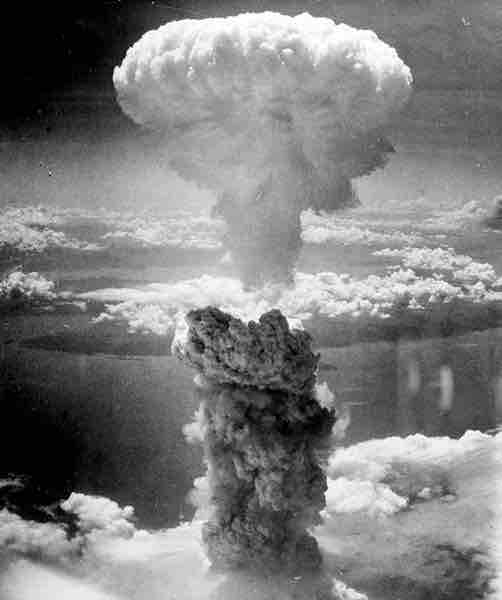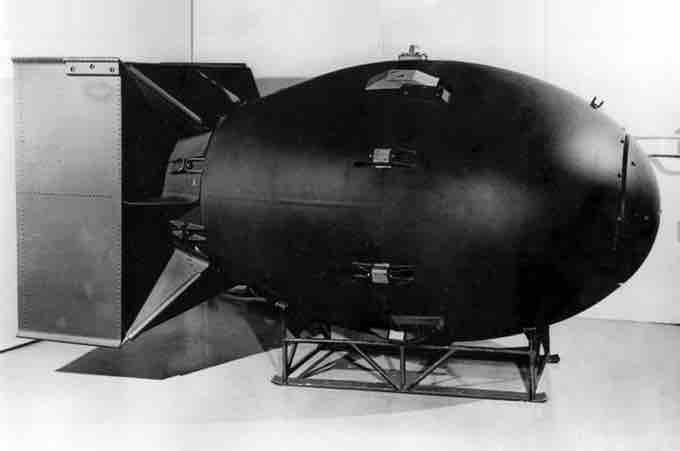A nuclear weapon is an explosive device that derives its destructive force from nuclear reactions, either fission or a combination of fission and fusion. Both reactions release vast quantities of energy from relatively small amounts of matter. The first fission (i.e., "atomic") bomb test released the same amount of energy as approximately 20,000 tons of trinitrotoluene (TNT). The first fusion (i.e., thermonuclear "hydrogen") bomb test released the same amount of energy as approximately 10,000,000 tons of TNT.
A modern thermonuclear weapon weighing little more than 2,400 pounds (1,100 kg) can produce an explosive force comparable to the detonation of more than 1.2 million tons (1.1 million tonnes) of TNT. Thus, even a small nuclear device no larger than traditional bombs can devastate an entire city by blast, fire and radiation. Nuclear weapons are considered weapons of mass destruction, and their use and control have been a major focus of international relations policy since their inception.
Only two nuclear weapons have been used in the course of warfare, both by the United States near the end of World War II. On August 6, 1945, a uranium gun-type fission bomb code-named "Little Boy" was detonated over the Japanese city of Hiroshima. Only three days later a plutonium implosion-type fission bomb code-named "Fat Man" (as illustrated in ) was exploded over Nagasaki, Japan. The resulting mushroom cloud is shown in . The death toll from the two bombings was estimated at approximately 200,000 people—mostly civilians, and mainly from acute injuries sustained from the explosions. The role of the bombings in Japan's surrender, and their ethical implications, remain the subject of scholarly and popular debate.

Nagasaki Atomic Bombing
The mushroom cloud of the atomic bombing of Nagasaki, Japan (August 9,1945) rose some 18 kilometers (11 mi) above the bomb's hypocenter.

Fat Man Atomic Bomb
The first nuclear weapons were gravity bombs, such as this "Fat Man" weapon dropped on Nagasaki, Japan. They were very large and could only be delivered by heavy bomber aircraft.
Since the bombings of Hiroshima and Nagasaki, nuclear weapons have been detonated on over two thousand occasions for testing purposes and demonstrations. Only a small number of nations either possess such weapons, or are suspected of trying to acquire and/or develop them. The only countries known to have detonated nuclear weapons (and that acknowledge possessing such weapons) are, as listed chronologically by date of first test: the United States, the Soviet Union (succeeded as a nuclear power by Russia), the United Kingdom, France, the People's Republic of China, India, Pakistan, and North Korea. In addition, it is also widely believed that Israel possesses nuclear weapons (though they have not admitted to it).
The Federation of American Scientists estimates that as of 2012, there are more than 17,000 nuclear warheads in the world, with around 4,300 considered "operational"—as in ready for use.